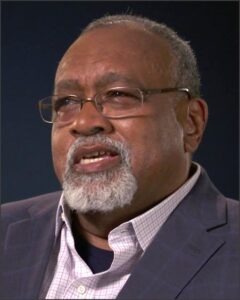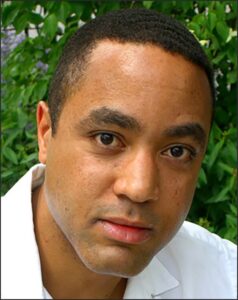by James A. Bacon
The drive to institutionalize Diversity, Equity & Inclusion in elite colleges and universities is profoundly destructive, according to presenters at a Friday conference of the American Council of Trustees and Alumni (ACTA).
Far from contributing to intellectual diversity, as it purports to do, DEI constrains free expression and free inquiry. It creates bureaucracies that consume resources that could be more profitably invested elsewhere. Moreover, DEI fails to address the underlying causes of racial inequality in America. Rather, it perpetuates inequality by setting lower standards for minority students and imbuing them with a crippling victim mentality.
The 2022 Athena Roundtable also presented awards and recognition to prominent intellectuals Glenn Loury and John McWhorter as well as to up-and-comer Erec Smith, founder of the Free Black Thought website, all of whom champion diversity of thought among African-Americans.
In a roundtable discussion, “Diversity Done Right,” the panelists did not hold uniform views but they agreed with one another far more than not.
One recurring topic in the roundtable’s critique of DEI was the idea that demographic diversity contributes to intellectual diversity. DEI mission statements in colleges and universities across Virginia, for instance, justify the value of DEI programs on the grounds that they create a more vibrant intellectual environment by bringing together people whose perspectives are derived from different “lived experiences.” None of the panelists took exception to the notion that demographic diversity adds value, but they noted (a) other types of “lived experience” have value, too, and (2) DEI in elite universities is couched in the vocabulary of identity politics that suppresses free expression and intellectual diversity in actual practice.
“Diversity should not be reduced to identity,” said Amna Khalid, a Muslim, a woman, and a professor of South Asian history at Carleton College. “Demographic diversity is supposed to promote intellectual diversity, but that’s been derailed.”
DEI orthodoxy stresses racial/ethnic identity, gender identity, and sexual orientation. But people have identities based on geography, religion, socio-economic status, veteran service, association with civic groups, and personal interests. Moreover, people vary in cognitive and personality attributes, said John Dana Chisolm, a California entrepreneur and active MIT alumnus. Some people think abstractly, others concretely. Some are risk-averse; some are risk takers. Some work collaboratively; some independently. Some interact with others based on relationships; others have transactional orientations. These traits provide an entirely different kind of diversity that contributes to group performance.
Chisolm, who is gay, advocates a “holistic” approach to college admissions with a goal of creating a diversity of experiences and cognitive strengths that transcend race, gender and sexual orientation.
An analysis of 2018 undergraduate enrollment at MIT found that the student body was heavily skewed to urban states, especially those in the Northeast, Chisolm said. Adjusting for state populations, enrollment for the 25 least-represented states accounted for only one third of the student body, while the other 25 states accounted for two-thirds. Most under-represented states were more rural and far from Boston. Their inhabitants tend to value individual responsibility, civic ties, frugality, work ethic, and nuclear families, and they’re more likely to have center-right political sensibilities, says Chisolm.
MIT appears to have no interest in that kind of diversity. “Rural, center-right sensibility, and lower-income individuals have no on-campus constituency advocacy at MIT at all,” Chisolm has written. They are more under-represented than the famously under-represented racial minorities. “They are invisible.”
Another theme was the bureaucratization of DEI. Universities have set up expensive bureaucracies to implement rules and enforce “woke” orthodoxy. Particularly concerning is compelled speech in the form of “diversity statements” used in hiring, promotion and tenure-track decisions.
Loury, a Brown University economist, described these statements as ideological “loyalty oaths.” Khalid described how DEI statements foreclose certain lines of inquiry on ideologically sensitive topics. Young people hopeful of breaking into academia, she said, will orient their research toward viewpoints that don’t run afoul of DEI dogma.
Dorian Abbott gained recent notoriety when a speech scheduled at MIT about planetary geophysics was canceled after the Twitter Outrage Mob attacked him for writing previously that academic evaluations should be based on merit. Even at the University of Chicago, renowned for its support of free speech, DEI administrators have interfered with his scientific work. The term “black body radiation” has a specific non-racial meaning in the study of radiative transfer, he said at the roundtable, but he was told not to use it. He also described how the field of geology is under attack by faculty professing feminist and “anti-colonial” perspectives. The science of geology, which arose in the context of Western capitalism and imperialism, is “extractive.” Geologists, according to this line of thinking, should consult indigenous cultures to see how they relate to their rocks.
(One important critique of DEI bureaucracy was not touched upon. DEI programs have no end game. There is no point at which DEI bureaucrats can say, “Our job here is done.” An iron law of bureaucracies is that they seek to perpetuate themselves. DEI administrators will always seek to identify new, ever more rarefied symptoms of bias to justify their existence.)
Khalid argued that universities could create more demographic diversity if they eliminated admissions preferences for legacies and athletes. No need for expensive DEI bureaucracies. Spend the money on tutors!
“Anti-racism” isn’t something that students can learn from a few hours of DEI instruction, she added. They could learn much more through open dialogue in the classroom.
A third theme was how destructive DEI ideology is to the very minority populations it is supposed to help. Loury and McWhorter excoriated DEI in their award acceptance speeches. Unfortunately, I did not take notes of their remarks, so I reconstruct what follows from memory and referral to their written work.
Universities rely upon racial preferences to achieve desired demographic profiles because it is the “path of least resistance,” Loury argues. Such preferences come way too late in peoples’ lives. They do nothing to address the shortfalls of human development in African-American households and K-12 schools.
“The underdevelopment certainly has a genealogy rooted in bias,” Loury has written. “But the problem of inequality for African-Americans today is not mainly the expression of a racist society. And jiggering the test-score standards for people to get into elite institutions is not a remedy for it.”
Setting lower standards for African-American and Hispanic students has at least two pernicious effects. One is that many students may wind up in institutions where the intellectual demands exceed their capabilities. Some might rise to the occasion, but others will stumble. Another risk is that minority students will internalize the implications of those lower expectations. Some might strive for excellence, but others might lower their own expectations and learn they can skate by with less effort.
If judged by its effects, as opposed to its charitable intentions, the “woke” strains of DEI implemented at America’s elite universities amount to a new kind of racism. By cultivating grievance and victimhood, DEI teaches minorities that the deck is stacked against them, discourages them from adopting habits of hard work and self discipline, and deprives them of the tools needed to succeed in contemporary society.




